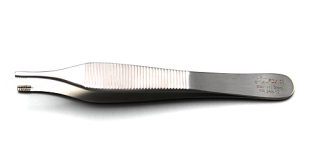Hypocitraturia, or a low citrate level in the urine, is a significant risk factor for the production of kidney stones (nephrolithiasis). Hypocitraturia is a frequent metabolic condition that affects between 20% and 60% of people who develop kidney stones. Citrate in the urine has long been known to be a calcium salt crystallization inhibitor. Citrate is a well-known inhibitor of kidney stone development, and it works in several ways.
Kidney stones are formed due to low urine citrate excretion. Citrate prevents the production of stones by forming a compound with calcium in the urine, reducing spontaneous nucleation and preventing crystal growth and agglomeration.
Hypocitraturia is a frequent metabolic disorder that affects between 20% and 60% of stone-forming individuals. Hypocitraturia is often caused by a high-protein diet, gastrointestinal dysfunction, a low-alkali diet, distal renal tubular acidosis, and hypokalemia.
Hypocitraturia should be treated with a mix of dietary changes, oral alkali, and maybe lemonade or another citrus-based therapy.
In summary, hypocitraturia increases calcium nephrolithiasis risk through increasing urine calcium salt supersaturation and decreasing calcium crystallization inhibition. It may also play a function in uric acid solubility and the production of uric acid stones.
Hypocitraturia Symptoms
Hypocitraturia causes no symptoms. A kidney stone does not usually produce symptoms until it moves about within the kidney or goes through the ureters. The following are some of the symptoms that are observed if the kidney stone becomes caught in the ureters:
- An acute pain below the ribs.
- Radiating lower abdominal and groin pain.
- Burning sensation and pain while urinating.
- Brown, pink and red urine.
- foul-smelling and cloudy urine.
- Urinary incontinence, urinating more frequently than normal or urinating in little amounts.
- Vomiting and nausea.
- In case of infection, fever and chills may appear.
- Extreme pain in your back or side.
Hypocitraturia Causes
The most common cause of hypocitraturia is idiopathic (unknown), but it can also be caused by Renal tubular acidosis (RTA), hypokalemia, intestinal dysfunction, and a high-protein, low-alkali diet. Other comorbid conditions, genetic factors, and drugs also play a role.
The causes of hypocitraturia are as follows:
- Diarrhea/malabsorption.
- Distal (type 1) renal tubular acidosis.
- Chronic diarrheal syndrome.
- Other systemic acidosis.
- Hypokalemia.
- Diet high in animal protein.
- Starvation.
- Ketosis promoting diets.
- Low fruit/vegetable intake.
- High sodium intake.
- Medications like Acetazolamide therapy, Thiazide diuretic, Amiloride, ACE inhibitors, Calcitonin, Calcium, Vitamin D, Topiramate, Lithium, and Ethacrynic acid.
- Strenuous physical exercise.
- Gout or gouty diathesis.
- Genetic influence.
- Renal insufficiency.
- Hyperaldosteronism.
- Type 1 glycogen storage disease.
Hypocitraturia Diet
There is a significant acid load in diets containing a lot of animal protein. This causes moderate metabolic acidosis, which results in decreased citrate excretion, hypercalciuria, and a decrease in the pH of urine excreted. Diets that are very carbohydrate-restricted and high in animal protein, such as the Atkins diet, aggravate metabolic acidosis by producing ketones.
Atkins-type diet fosters lower urine pH and citrate secretion at its maintenance and induction stages as compared to a regular diet. Citrate excretion may also be influenced by other types of dietary protein.
Citrate excretion may also be influenced by other types of dietary protein. Rats fed with a high-casein diet, for example, excrete less citrate and more calcium. The increased activity of the NaDC transporter generated by casein is assumed to be the cause of the lower citrate excretion in these animals.
Fruits, vegetables, and dietary fiber, which are commonly under-consumed by stone victims, provide an alkali source that can counteract the effects of protein ingestion. Normal people had lower urine citrate excretion and higher calcium oxalate and calcium phosphate saturations when these foods are removed from their diets; however, increased consumption of fruits and vegetables has the reverse effect.
Urinary citrate is reduced by high-sodium diets, probably due to a moderate expansion of acidosis. Finally, it has been demonstrated that fasting increases citrate absorption by increasing NaDC transporters and causing systemic acidosis.
Hypocitraturia Treatment
Hypocitraturia should be treated to resolve the underlying disease that results in decreased urine citrate. Obtaining a modest metabolic alkalosis to raise urine citrate is recommended if the patient has idiopathic hypocitraturia. The use of citrate preparations or other alkalis has been shown to help hypocitraturia patients.
Potassium citrate is the best and most acceptable medication for the treatment of hypocitraturia patients. These citrate preparations provide an alkali load, which raises urine citrate. Potassium citrate is effective in raising urine citrate levels in 80-90 percent of hypocitraturia patients. Recurrent stone development is less likely as a result of this.
The treatment of this asymptomatic disease is mostly done by keeping a healthy lifestyle through the use of a less proteinic diet.
 Health & Care Information
Health & Care Information 


